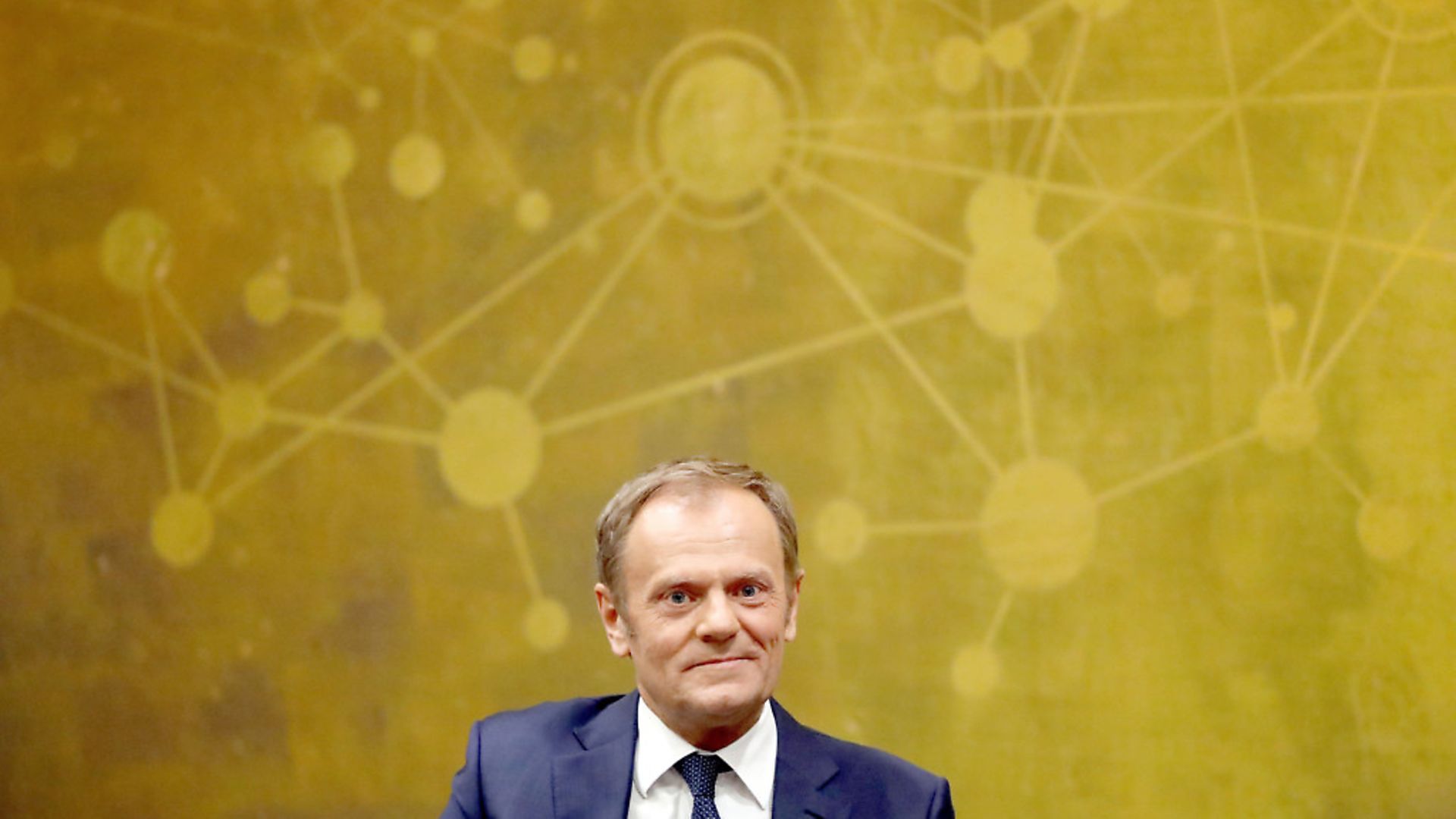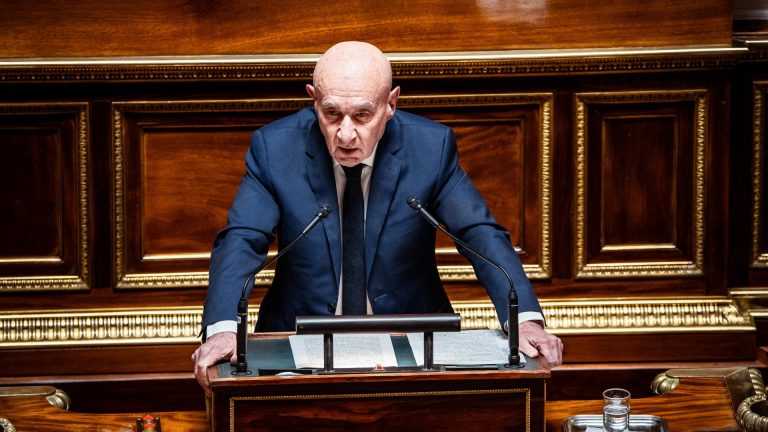
In a provocative article, former UKIP official GAWAIN TOWLER describes the significant shift which has taken place in Brussels, as the EU blinks first over immigration.
Over in Brussels the panjandra of the European institutions have been in a bit of a tizzy over two things: populism and immigration. Really, though, Europe’s finest are (finally) preoccupied with one issue, because you cannot explain the first without understanding the second.
The rise of populism is visible across the continent but seen in its most visible electoral breakouts in Italy, Austria, Hungary and Germany. It is as if the fertile sediment of liberal democracy laid down since 1945 is being scoured away leaving a much harder rock beneath, with mass immigration being the rapid glacial flow.
At the start of last month, the Bilderberg group met in Italy. Among those attending were José Manuel Barroso, former president of the European Commission and now chairman of Goldman Sachs, Mark Carney, governor of the Bank of England and the prime ministers of Belgium, Serbia, the Netherlands and Estonia. Also there was Günther Oettinger, European commissioner for budgets, former home secretary Amber Rudd, Jens Stoltenberg, NATO’s secretary general, George Osborne, one-time chancellor and now newspaper editor, Brende Børge, president of the World Economic Forum and the CEO’s of many of the world’s largest firms, including BP, Capgemini, Palantir and so on… you get the point.
What was at the top of the agenda, rising seven places since last year? Populism in Europe. Having spoken to one who was there, it is clear the subject wasn’t first amongst equals: it was essentially the only thing seriously discussed. Immigration wasn’t even there as a separate issue.
Fast forward a few weeks, to the recent European Council meeting in Brussels, Brexit was a mere footnote to the really big issue. As Donald Tusk, president of the council, said in his opening communiqué: ‘Some may think I am too tough in my proposals on migration. But trust me, if we don’t agree on them, then you will see some really tough proposals from some really tough guys.’ Which tough guys are these? Certainly not the UK government, which has spent the time recently thinking of ways to rub out its own ‘red lines’ over Brexit.
Before the council met, we saw a very combative performance from Péter Szijjártó, the Hungarian foreign minister, when up against Emily Maitlis on Newsnight. When challenged on the tiny number of refugees and migrants that have settled in Hungary, he pointed out that 400,000 had passed through his country, and had fought with police and been disruptive on their way. This obviously did not please Maitlis.
‘What we don’t want is a massive illegal influx coming from the south to us,’ Szijjártó said. ‘We want to keep Hungary a Hungarian country and we don’t think by definition that multiculturalism is good… If you think so, if people in this country think so, we respect that, but please don’t put pressure on us.’
Then Cathy Newman, of Channel 4 News, tried to persuade a Polish MP, Dominik Tarczynski, that the ‘politicians of Europe’ have a ‘moral, humanitarian duty to step in? [to take in more immigrants]’
Tarczynski’s response was nothing if not succinct. ‘No.’
Lord alone knows what the new interior minister of Italy, Matteo Salvini, would say if he agreed to appear on our television screens. It was his decision to stop the refugee boats which has brought the immigration issue into sharp focus across Europe.
But, as mentioned, it is clear that the issue is not migration per se, or the impact of mass inward migration on the settled populations of the European Union. Rather, it is the way that the policies that allowed such migration to happen have created a political space for parties across the EU which do not share its political consensus.
While the EU still accepts the concept of member states, or nation states, and recognises subsidiarity, it is not hard for a national political party to say with some legitimacy: ‘We were elected by the people of our country, and our first duty is to them.’ Most people would accept the democratic, moral legitimacy of this point.
So did last week’s late night diplomacy bear fruit? Has president Tusk managed to come up with something that will stop the ‘tough guys’ of his nightmares? To find out, just look at the document produced by the council at the end of the meeting, where it talks about what to do with migrants who arrive in the EU.
‘On EU territory, those who are saved, according to international law, should be taken charge of, on the basis of a shared effort, through the transfer in controlled centres set up in Member States, only on a voluntary basis, where rapid and secure processing would allow, with full EU support, to distinguish between irregular migrants, who will be returned, and those in need of international protection, for whom the principle of solidarity would apply. All the measures in the context of these controlled centres, including relocation and resettlement, will be on a voluntary basis, without prejudice to the Dublin reform.’ (The italics are my own.)
Despite the characteristic European communiqué gloss that can make every goose a swan, even from a cursory reading, it is clear no functional agreement has been made.
The Austria-Hungary-Italy alliance came out of the negotiations have won. All the noises of the past year – in which dark threats about EU funding have been made to countries reluctant to accept quotas of migrants – have ended.
The agreement is entirely non-compulsory, requires no action on the part of those nations who have no desire to comply, and will mean that it will be even harder for Brussels to demand obedience from its recalcitrant members. If further threats come their way, countries can just point, with a self-satisfied grin, at the words of the communiqué.
Far from undermining the populist surge, Tusk has managed to strengthen it. By allowing Italy and the others to impose their will, he has given encouragement to other political movements in the EU. Voters will see that should they vote for parties such as the Swedish Democrats – who go into September’s elections in confident mood – that they can force the EU to cave in again.
As for the EU’s new ‘stop the boats’ policy in the Mediterranean, though certainly a sop to the populist position – after all, I remember the near-universal screams of outrage when Nigel Farage suggested looking at the Australian experience only three years ago – it will not work. NGOs will still operate, and the trafficking vessels will keep heading north across the sea, meaning we will continue to see tragedies. If the boats are found in European waters then their passengers will be landed in Europe.
This still presents a strong pull factor, one that will be exploited by the gangs.
The very thought that the EU could operate effective and humane relocation camps in Libya is also risible. If France cannot stop trafficking gangs controlling the flow of migration through its own Channel ports – yes, the Sangatte Jungle was closed but now the load is spread as far west as Caen and north to Zeebrugge, in Belgium – how on earth does the EU think it will be able to apply any control or humanitarian basics in camps in North Africa?
So when it comes to the political winners from this council, lip service has been paid to stopping the boats, but they will still come, as the policy is half-hearted, the thought of external camps is riddled with impracticality and the Awkward Squad of populist-led countries have no reason to accept any enforceable quota of migrants or refugees. And though the council staved off calls for stronger internal borders between member states, the idea is not off the table.
At this meeting, it was definitely Populists 1, Liberal elites 0.








